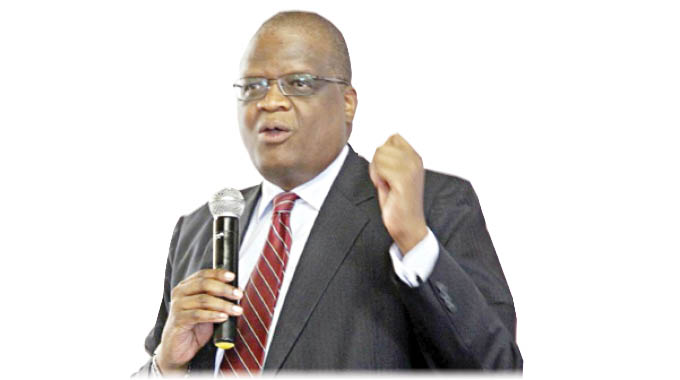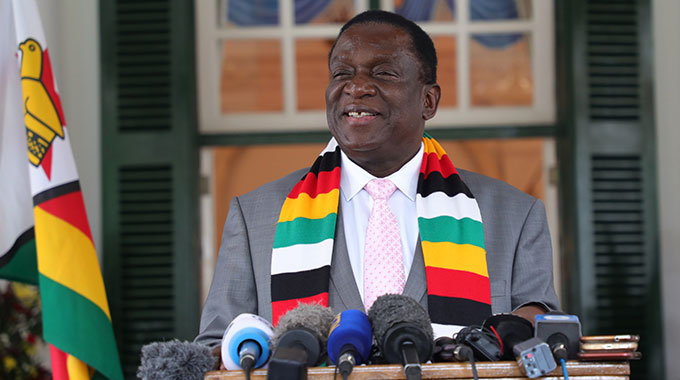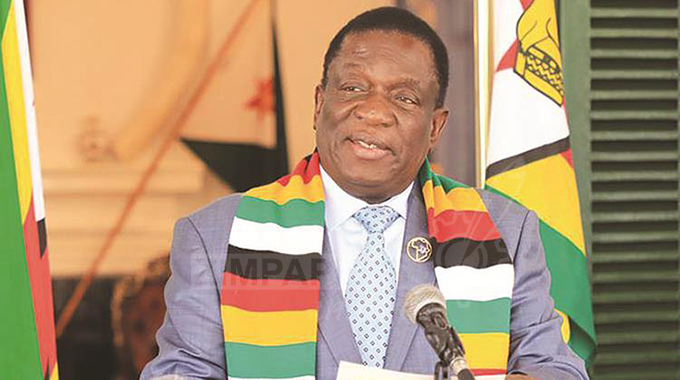US$980m forex inflows in 2 months . . . Fails to arrest spiralling exchange rates: RBZ

Oliver Kazunga, Senior Business Reporter
ZIMBABWE received US$980 million in foreign currency inflows between January and February 2020 but this could not diffuse spiralling exchange rates due to lack of an efficient model of distributing foreign currency towards critical economic needs, Reserve Bank of Zimbabwe (RBZ) Deputy Governor, Dr Khuphukile Mlambo, has said.
The rapid movement of the exchange rate, now pegged at around US$1:ZWL$40, is one of the drivers of inflation in the economy.
Speaking during a forum on Government taxation and its effects on women in Zimbabwe held in Bulawayo on Friday, Dr Mlambo said the widening exchange rate was not caused by foreign currency shortages in the economy as some people would think.
He said when compared to other countries on the continent such as Tanzania and Ethiopia whose economies were better performing, Zimbabwe was by far registering significant foreign currency inflows.
“If you look between January and February this year, we have already received US$980 million in inflows. At the end of 2019 we had received US$6,9 billion in forex inflows and the country has 14 million people,” said Dr Mlambo.
“If we compare with other countries such as Tanzania and Ethiopia, I didn’t have 2019 figures for Ethiopia, in 2018, Tanzania earned US$3,6 billion in export revenues, Ethiopia earned US$1,7 billion and that same year Zimbabwe earned US$4,2 billion.
“So, how possible is it that Tanzania has less foreign currency but their exchange rate is stable? Ethiopia, which has 150 million people, has US$1,7 billion but the exchange rate is stable.
“So, clearly for us it’s not because we don’t have foreign currency, it’s because we don’t have an efficient way of distributing that foreign currency throughout the whole economy. Therefore, that bit can’t be the one causing the current movement of the exchange rate.”
In June last year Zimbabwe abandoned the multicurrency system, which it adopted in February 2009 and reverted to the local dollar. However, since its re-introduction, the local currency has been weakening against major currencies such as the US dollar and the South African rand.
“If we look at the movement of the exchange rate, for example, at the end of February, we were in terms of the exchange rate sitting at around 18, 19, 20 but this month it started moving rapidly to about 30 within a day or two,” said Dr Mlambo.
“And then last week starting from Friday, it moved from 30 to 34, 35 and as of yesterday (last Thursday), it was at 40. We need to understand what is moving that? Is it because we have done something wrong as Reserve Bank as some people think?”
The Deputy Governor said generally, what was expected was to see exchange rate volatility emanating from increased money supply by the Central Bank, which he said was not the case at the moment.
“If they (people) have more money in their pockets, they go and demand more goods and services, but production does not have enough time to respond to that increase in demand. So, what do people normally do, they import the goods,” he said.
“When they import the goods, they put pressure on the exchange rate and that exchange rate becomes volatile.
“So, businesspeople say they can’t price properly because they don’t know what the exchange rate is going to be tomorrow. This then creates an expectation of future increase in inflation,” said Dr Mlambo.
He said as the monetary authority they have decided to control money supply growth, adding that between January and December there has been reduced money supply in the economy yet the exchange rate is going up.
Last Wednesday the RBZ dumped the interbank market rate by allowing banks and bureaux de change operators to freely trade forex subject to market forces. The move follows Government’s bold decision to liberalise the foreign currency trading market so as to harness the exchange rate volatility and inflation. To buttress the decision, Treasury has introduced an electronic forex trading platform based on the Reuters system, which allows registered financial institutions to freely trade foreign exchange. – @okazunga.












Comments